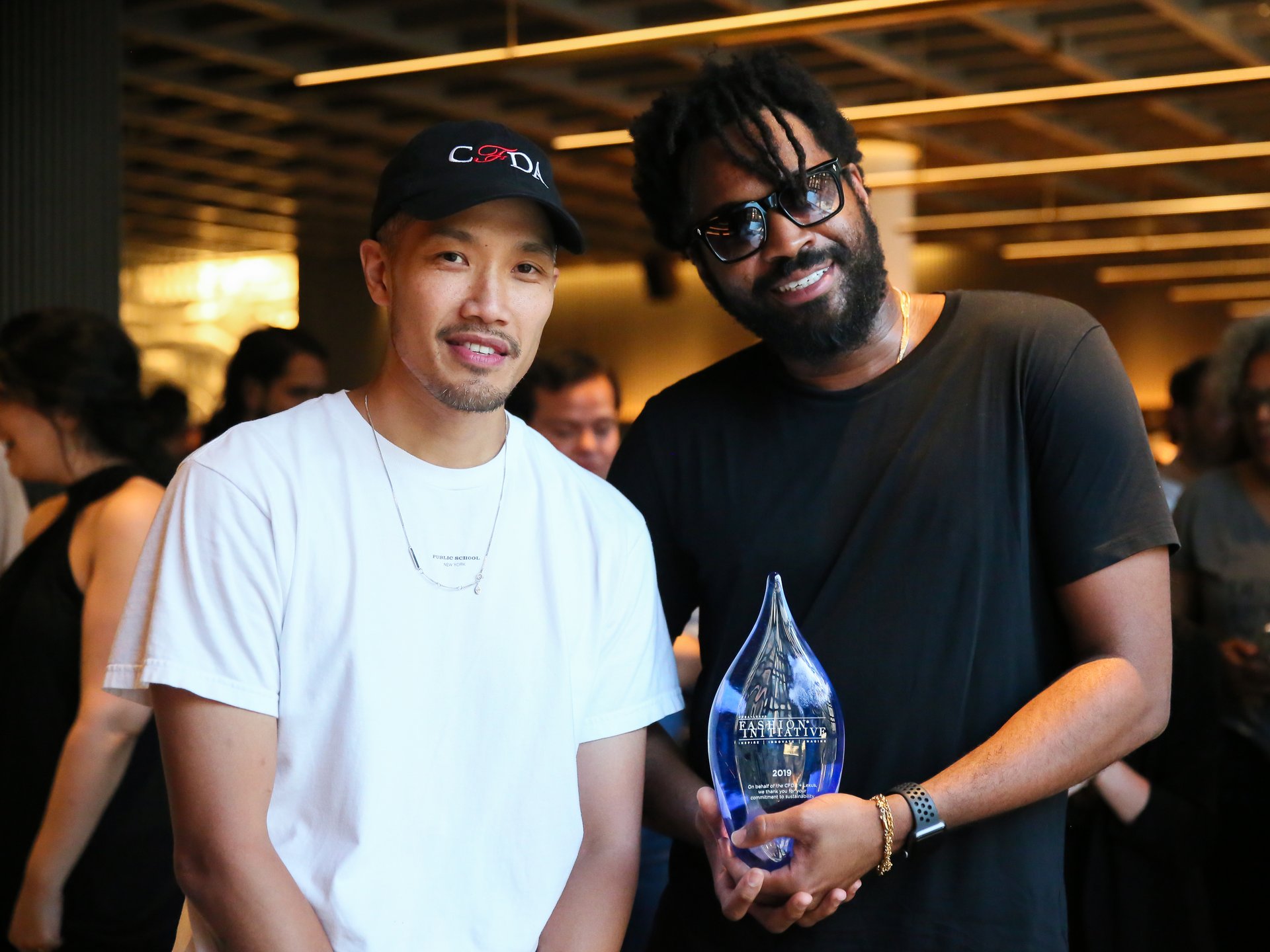Cotton — “it’s the fabric of our lives.” The frothy, moisture-wicking wisps are used in bandages that cushion our wounds, in sheets that cradle us to sleep, and in clothes that shield us from the elements. Beloved for its accessibility, breathability, and profitability, it’s also known as “white gold.” This isn’t mere hyperbole: the U.S. cotton industry alone stimulates close to $120 billion in business revenue annually, while nearly 50 percent of the cotton it produces is spun into textiles and thread for apparel. In addition to being pesticide-ridden and resource-intensive (it takes 2700 gallons of water to produce a single T-shirt), global production of the crop releases 220 million metric tons of carbon dioxide into the atmosphere annually, according to the North American Organic Trade Association.
With all of its shortcomings, cotton continues to dominate the fashion industry and maintain a firm grip on the streetwear category. The youth-driven market’s “blanks” — basics including T-shirts, hoodies, and sweats ordered by brands for customization—are made almost entirely using virgin, often irresponsibly-sourced cotton. For Public School founders Dao-Yi Chow and Maxwell Osborne, that reality is simply too troubling to ignore. “We’ve been guilty of using those sources,” Chow admitted. “We were searching for more sustainable options for a while and finally said, ‘F*ck it. Let’s do it ourselves.’”
As a part of the CFDA + Lexus Fashion* Initiative class of 2018-19, Chow, Osborne, and their business partner Alan Mak built a platform that reaches farther than Public School in an effort to create industry-wide impact. Dubbed V-TO (vee-too), the $100,000 Lexus Grant-winning B2B fabric and garment supplier is geared toward making recycled cotton a streetwear industry mainstay. “We’re creating version two of the blanks programs that are prevalent in the streetwear and merch businesses,” Chow said, expounding on the venture’s moniker. “It also stands for ‘version tomorrow.’ That’s what we need to save.”
V-TO’s circular production process—carried out in a Canadian mill that minimizes water usage, recycles water, and maintains transparent, ethical labor practices—will produce textiles and “blanks” with 60% recycled and 40% certified-organic cotton. “The raw material is readily available and would otherwise be incinerated or land-filled,” Chow explains, noting their plan to partner with brands and retailers to collect garments for recycling. “We’re not making anything new for the purpose of repurposing it.” Chow, Osborne, and Mak are poised to take over the streetwear category with V-TO. In fact, the timing couldn’t be better.
Now more than ever, young consumers are voting for sustainability with their wallets. Among millenial and Gen Z shoppers, 75 percent are willing to alter their buying habits for the benefit of the environment and even pay more for sustainable products. For streetwear enthusiasts, authenticity is key and informed purchases have a particular cachet. Knowledge of brands, releases, and the histories of iconic styles, long served as the community’s social currency. Sustainability could soon join that list. After all, shopping green to combat climate change is akin to “copping” an exclusive sneaker as soon as it “drops”—both require one to be in the know.
Although this isn’t new information, streetwear’s major players have yet to address their impact on the environment. “It’s hard for brands to be able to carve out the energy to [prioritize closed-loop production],” Mak explained. “Generally speaking, there’s inertia in business processes and supply chain because of how quickly the product cycle moves. It can be difficult, and potentially cost prohibitive, for companies to dedicate resources to making changes.” As a potential turnkey partner for brands that want to shift to ethical sourcing, V-TO is in a unique position to affect change. According to Mak, it’s also a means of “pouring gasoline on the conversation.”
It’s what Public School has done from the get-go. “We see our brand as more than just a fashion brand,” Mak said. “We have a responsibility to the community to use our voice to affect action.”
What began in 2016 with a “Make America New York” and “DACA Dreamers” hats benefiting the ACLU led to sustainable collaborations with New Era and Levi’s. “Hearing Eileen Fisher speak was an ‘aha’ moment for me,” Chow revealed, referring to her address at the 2017 Copenhagen Fashion Summit. “She was so inspirational and genuine in sharing her journey [with sustainability]. It made me believe we could do the same—that we needed to do the same.”
The following year, Public School released a menswear collection made of deadstock fabrics and partnered with Eileen Fisher on a zero-waste collection made with materials from the company’s “Renew” take-back program.
“Once you’ve started on the path to sustainability you quickly learn that you can’t do it yourself,” Chow said. “It serves no purpose to withhold anything, whether it’s your stance or information that could enlighten or inspire somebody else.” With a number of international brands and retailers scheduled to collaborate with V-TO through 2020, the Public School team’s willingness to share seems to be unclogging the cotton-jammed ears of the industry’s conscience. “We all have a responsibility to do our part,” Chow asserted. “We can’t escape the reality of our footprint as an industry. At a certain point you have to look at yourself in the mirror to see how you can help.”



